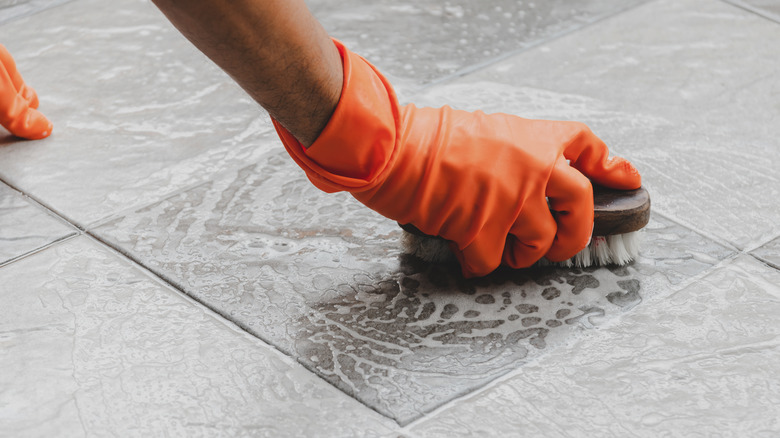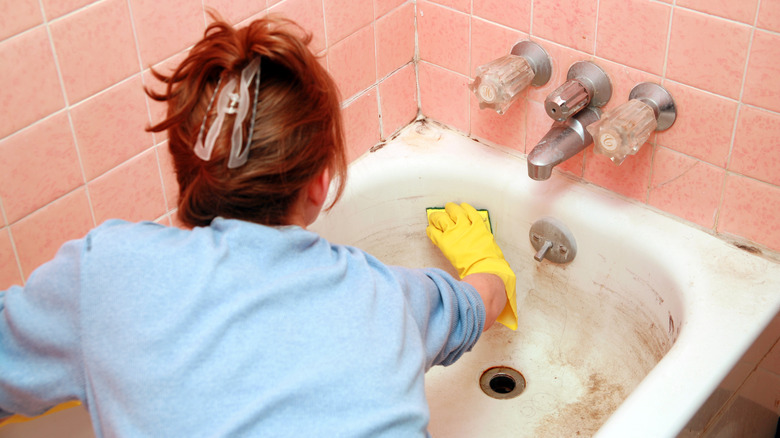Why You Should Start Using Coconut Oil To Clean Your Shower
From baking soda to vinegar, a laundry list of cleaning substitutes gets the job done. In recent years, coconut oil has offered an endless supply of benefits — and while a spoonful of coconut oil can improve oral health or re-energize us, it can also help keep your shower clean. According to the Communications Director for the Coconut Coalition of the Americas, Traci Kantowski, coconut oil works great for cleaning showers because of its natural microbacterial properties, such as lauric acid.
More importantly, modern showers are typically made with iron that corrodes over time, subsequently harboring bacteria and soap residue. When iron meets mold, hard water, and copper, it can form a black grit that feels impossible to resolve. Antibacterial properties in coconut oil can fight against potential pathogenic bacteria that spread disease while moisturizing these surfaces in the process. Much like coconut oil can make stainless steel shine like new, introducing a few spoonfuls to your shower can be a game-changer.
Coconut oil leaves your shower squeaky clean
Coconut oil is a great way to scrub your shower clean of grime. To get started, you'll need a jar of coconut oil and a powdered cleaning agent of your choosing, such as baking soda or vinegar. Place a few spoonfuls of coconut oil into an empty container before mixing with an equal amount of baking soda to form a creamy paste until you've made a substantial amount. Allow the mixture to sit for 5 minutes before placing several spoonfuls of the substance around the tub. Ensure every corner and side is coated and allow it to sit for 10 minutes.
Once the paste has settled, use a sponge to scrub any surface-level residue off. Before going in for a second scrub, use a paper towel to wipe off any excess paste that's mixed with the residue — you'll wipe off any additional surface grime before going in for a second scrub. Once you're done, apply a second coat of paste to the tub and scrub to remove any remaining residue. Polish off with bleach or a multi-surface cleanser, and voilà! Your tub should be squeaky clean.
Potential downsides of using coconut oil
While coconut oil can act as a great cleaning agent, there are a few hazards to be mindful of, especially in the shower. For example, shower heat absorption can carry a variety of odors that can end up harboring bacteria on our face and body. Coconut oil is not recommended for our skin as it can clog pores. Similarly, cleaning the shower with coconut oil may cause oil to be absorbed into the air and our pores. According to Dr. Craig Austin, coconut oil is an inherently comedogenic product. This means that applying oil to your skin often aids in clogging your pores by trapping bacteria and dead skin cells.
Even though cleaning won't exactly put coconut oil directly onto your face, absorptive properties can have the same impact as direct application. It's important to wash your face after showering to ensure there's no lingering bacteria. In addition, coconut oil can create a slippery surface on porcelain bathtubs, which may be a hazard to you or your children. Ensure that cleaning is meticulous and that no traces of coconut oil are left behind. If you're careful, this cleaning aid should work in your favor for a sparkling tub and shower.


